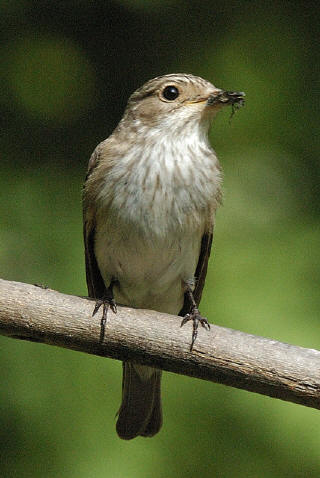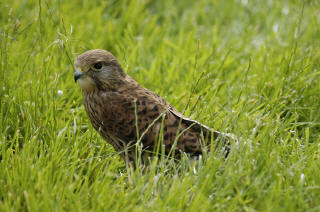|
Article
Hides and Camouflage
In this article I want to explore the use of
hides and camouflage, what is available and how to use it, as well as looking
what I personally have, and my experiences with it.
|
Hides
I have a mobile hide, a
sort of pop up tent, complete with scent control, but hardly ever use it. This
is the ideal hide for photographing wild deer, boar, or waiting for kingfisher,
or waiting for a scavenger to come and pick on rabbit carcase or the like.
Its not something that you would want to leave in one place for a long time, so
its really for those special wildlife projects where you decide in advance
exactly where you are going to be, the direction to look and are just going to
sit and wait for a period.
|
| If you have a location, that you will be
using a lot, then a most substantial hide, perhaps a garden shed, would be
more ideal, and we find this type of hide provided for us in many RSPB and
other sites, as well as at WWT sites. Often these are still quite a way from
the birds. You also have to move a long lower lanes or hedge covered areas to
get to and from them. Vehicles make
good hides, even just sitting in a car parked up with the windows open will
work, although for more timid creatures a piece of camo material over the
windows is ideal.
In the garden a swinging garden seat with a
weather cover is quickly accepted, and if you take off the swinging seat, you
have an ideal hide when you want one. I have found two slight problems with
this, partridges decided it was a good roost, and decided to move in, and
on one occasion badgers had become so familiar with it that they to were using
it as a hide so on occasions I have ended up sharing it with some of the
creatures for a bit.
Another hide I have is a bag I made. This started
out as a long length, around 15 feet of leaf cut camo material, its a sort of
partly stamped out material, so I suppose you could describe it as a bit like
net with leaf pieces, when you smooth it down it looked like a solid piece of
material. So when you are behind it you can see through, its brown and green. I
folded this in half to form a bag over 7 foot long, but rather than sew down the
seams I used on one side a long piece of velcro, on the other side I used a
range of shorter velcro pieces, this allows sections to be opened at any point
for a lens to be put through. If I stand out in the open in this its likely
wildlife will still spot me, but when I stand next to a bush or tree, I become
part of it. As I can split it along the side, I am also able to lay on the
ground and use it to cover me. Its very light and folds up into next to no space
so fits easily in the front pocket with other items of my larger camera bag.
|

 A Flycather
A Flycather |
|
Camouflage outfits
You could spend a fortune on the 'in design'
shooting style camo kit, or get as much effect by choosing clothes with
generally darker colourers. A face net, hat and maybe gloves assists you to be
less visible.
I bought, on eBay, a second hand German army
motor cyclists camo outfit, this is a pair of trousers and a jacket that are
zipped together, and have extra padded pieces with protectors on the
elbows and knees etc. The advantage is that its rugged, and ideal for
crawling around while looking for wildlife, add a face net, and hat, and I could
scare nearly anyone. In theory this outfit should be ideal for creeping up on
deer, wild boar and more, however its clear that birds can see it, and they tend
to treat it as a potential predator and move in closer to take a look, It maybe
that its still person shaped, or perhaps the colours we see are different to
those the birds see. This is also quite a bulky thing to carry around.
I haven't done a direct comparison between the
outfit and the camo bag, my feeling is that the bag is better, as air goes
through it and you can see through it, you don't 'boil in the bag' while with
the outfit it gets rather warm after a while.
When one of my children was young they had an
army style dressing up outfit, I cut off one of the legs of this to form a tube I
can put my telephoto lens through. A section of the jacket from the outfit I cut
a piece of material that goes over my camera body and hands.
The other item I have is a camouflaged
groundsheet, in theory I could hide behind or under it, but usually I use it as
a water proof base and split the bag to go over the top. The groundsheet is also
small enough to carry all the time amongst the items in the front pocket of my
larger camera bag.
|
Conclusions
- Many animals and birds become tolerant to
you being present
- Existing familiar items may make a hide
- Vehicles are good hides
- Specialist hides are useful, although in
practice I didn't use one often
- Dark or earth colours are sensible as you
blend in
- You need a hat or some means to hide your
face and head
- Camo clothing may not be as effective was
you think
- Disrupting your body shape is as important
as colours, so perhaps a bag is better than a suit
- Camo leaf material is useful ether as a length
or to make a bag
- You need to be able to cover your camera and
hands
- It get hot in many things
- You need to be able to change direction and
ideally move if the need arises
- Its yet another thing to carry so weight and
size is relevant.
|

 A Bird of Prey
A Bird of Prey |
See Also
Wildlife photography

Animal Behaviour

Equipment suitable for
wildlife photography

General tips on
photographing wildlife

Introducing Birds

Where to Photograph
UK Wild Birds

Squirrels and How to
Photograph Them

Where to
photograph Red Squirrels
 |